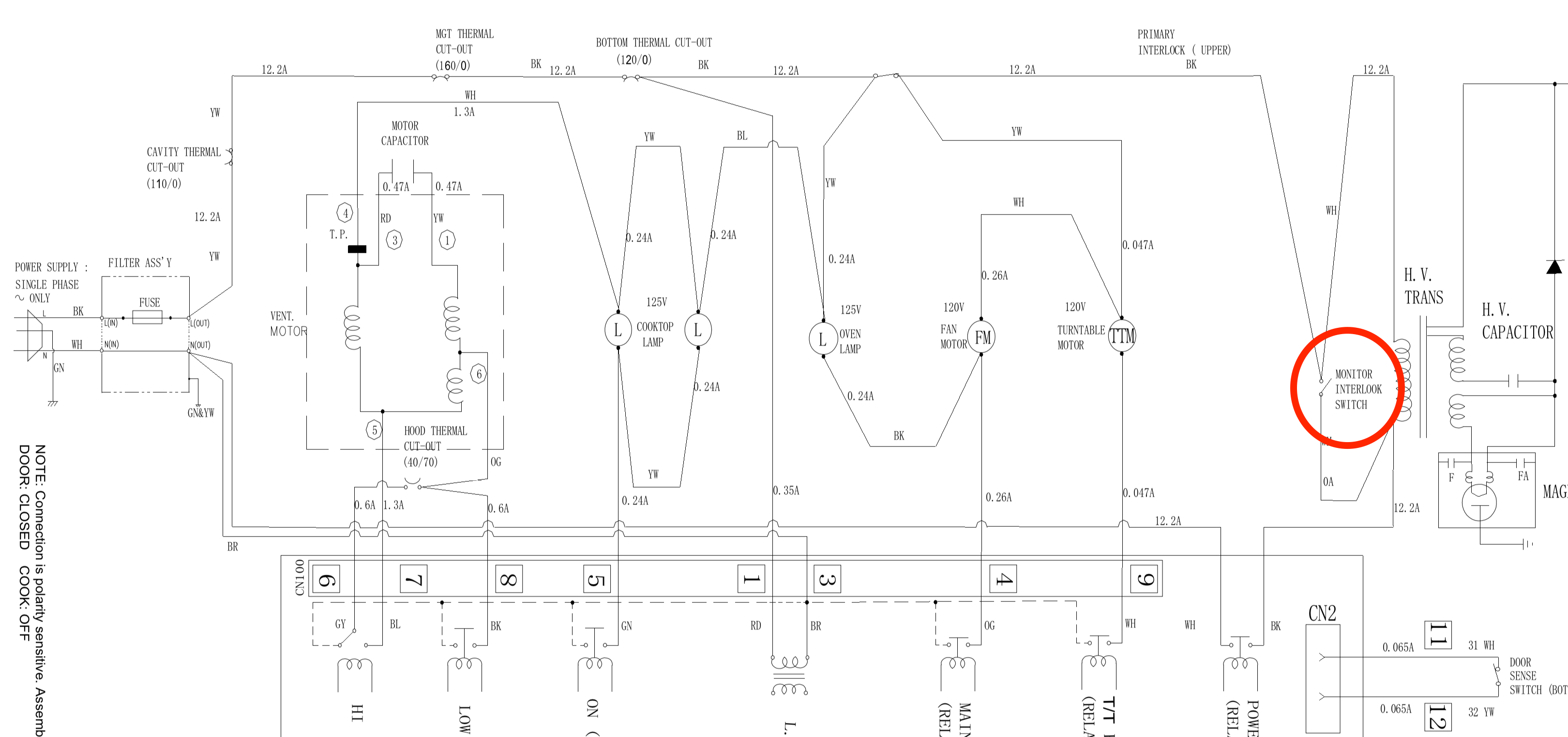My 11 year oil microwave popped the 20 amp dedicated breaker. It also looks like it blew its internal fuse. To give it the Hail Mary I’m willing to replace the fuse and also have a second one ready to go. The capacitor is easily accessible from the front of this over-the-stove Whirlpool microwave so if it pops the breaker again, I plan to replace the capacitor. I’m comfortable discharging them. There were no weird sounds prior to the breaker going. It had just finished a 10 minute session on high and it counted down to zero and displayed “End”. When Mrs. Snagglefoot opened the door the microwave’s lights went out. The 20 amp breaker downstairs had popped.
Does anyone else have any additional thoughts? My local repair guy typically charges 50% of a new appliance when he fixes an old one. Definitely I would just buy a new one rather than take it to him. Any other easily repaired faults? Thanks. Snag
Here’s the general type of capacitor it has. I have to pull it to get a match.

Does anyone else have any additional thoughts? My local repair guy typically charges 50% of a new appliance when he fixes an old one. Definitely I would just buy a new one rather than take it to him. Any other easily repaired faults? Thanks. Snag
Here’s the general type of capacitor it has. I have to pull it to get a match.
Last edited:

